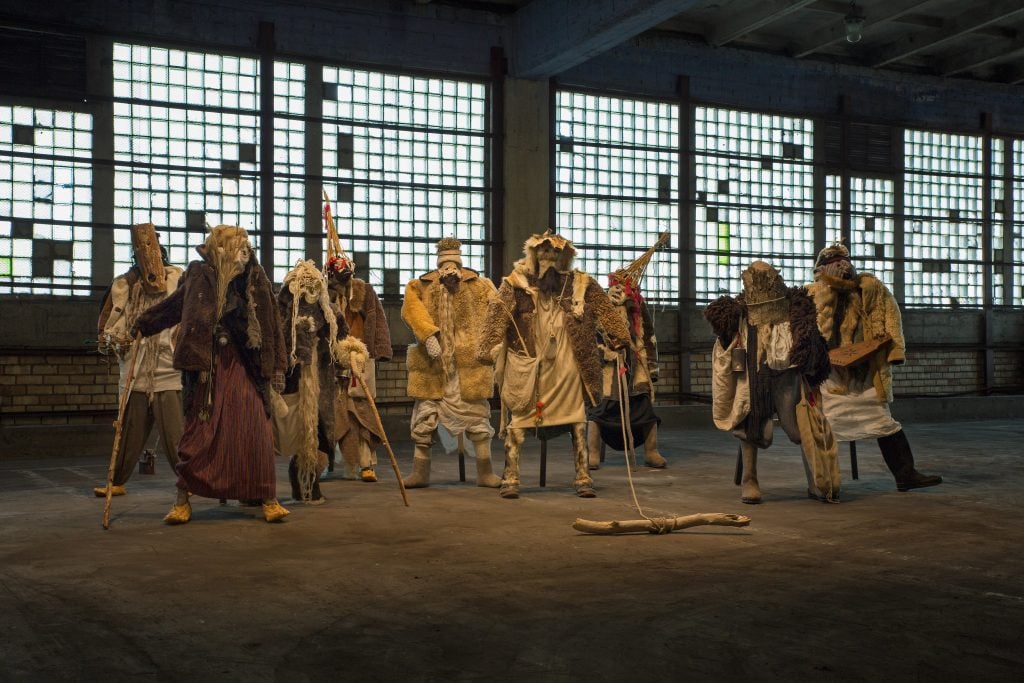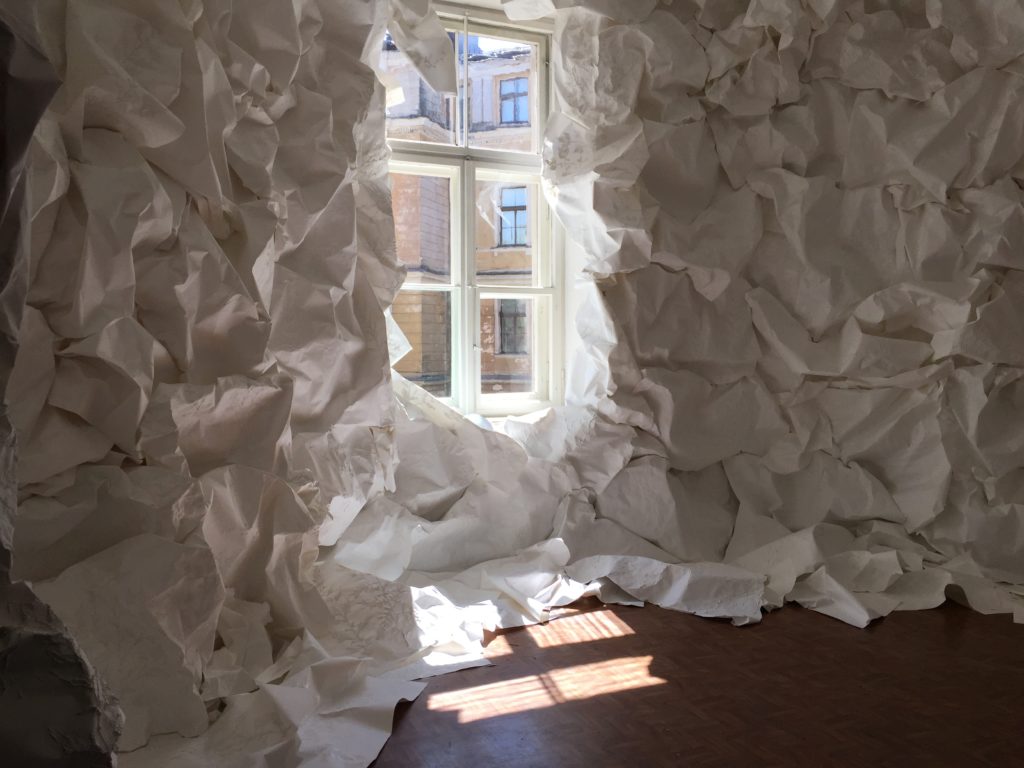The Riga International Biennial of Contemporary Art (RIBOCA) in Latvia, which was about to launch the main program of its third edition in August, was canceled because of its links with Russia.
“It seems that the legacy of our executive members, which includes Russians among Lithuanian and Latvian nationalities, is something too great to overcome as the Russian attack on Ukraine rekindles tensions from an occupied past. “, wrote the organizers in a press release confirming the suspension of the event. .
The event’s founder, Agniya Mirgorodskaya, is not only of Russian and Lithuanian descent, but has until recently relied on Russian funding from her father, fishing entrepreneur Gennady Mirgorodsky. This association was awkward for the former Soviet-occupied country even before Russia invaded Ukraine in February 2022. Latvia has its own painful history with Russia, and it regained independence from Soviet rule early 1990s following the Baltic States. ‘ Singing Revolution. Since then he has endeavored to reduce the cultural influence of its neighbor.

Nikolai Smirnov, Religious libertarians (2020). Commissioned by the 2nd International Biennial of Contemporary Art in Riga, RIBOCA. Photo by Hedi Jaansoo. Courtesy of Riga International Biennial of Contemporary Art.
The biennial was originally scheduled to take place in 2022 but was postponed shortly after the outbreak of war. Publicly, the organizers launched their Common Ground initiative, instead promoting their venue as a place for Ukrainian refugees to socialize and work. Behind the scenes, however, its organizers seemed to be scrambling to distance themselves from their Russian roots. According to a round table with Latvian cultural workers in collectorsas soon as the war broke out, several artists who were to participate in the third edition withdrew.
“It was very clear from day one that we needed to completely change our funding structure,” Mirgorodskaya said. Artnet News earlier this year when the biennale attempted to restart. A temporary solution came thanks to her husband Robert William Pokora, a financier working in real estate in New York, who agreed to donate a fixed percentage of his income to a new endowment fund for the biennale.
It now appears that these efforts were not enough to stem a rising tide of skepticism and resistance to any Russian influence within the arts and culture scene in Riga, and any real or symbolic link with Russia has proven impossible. to overcome for RIBOCA. Some were also dissatisfied with the claimed financial adjustments.

Teemu Korpela Layout 1 (2018). RIBOCA1: “Everything Was Forever Until It Was No More” in Riga, Latvia, June 2-October 28, 2018, rigabiennial.com
“RIBOCA’s argument that money for artists’ fees comes from other countries, such as Switzerland, is a soothing compromise of an accounting service,” artist Maija Kurševa said in collectors who retired from performing after the war began. “It’s a legal but totally unconvincing argument.”
Žanete Liekīte, a curator from Riga, criticized the biennial organizers in a recent opinion piece published in Latvian press. Among her points, she questioned the validity of their attempts to support Ukrainian refugees while refraining from calling on the Russian government for war. “‘RReacting to the brutal war in Ukraine” without directly mentioning the aggressor turns into a funny situation, with one hand reaching out to Ukraine, while the other is held on Russia’s knee. (The organizers expressly condemned the “Russian attack” in their latest statement).
Liekīte also questioned the unmentioned disappearance of sanctioned Russian Pyotr Aven from a list of supporters (he had supported the first biennial with a small grant as well as another one-off event).
The main exhibition of the third edition of RIBOCA was scheduled to open on August 10 and run until March 2025 in collaboration with eminent curator René Block. After the initial postponement after the invasion, the show resurfaced with a noticeably different roster of artists and with artist collective SUPERFLEX added as a co-curator.
The show was renamed “There’s an Elephant in the Room”. The plan was to stage works by 25 female artists across multiple venues in Riga, each offering their own take on an urgent but thorny issue. A first phase of the revamped biennial program opened at Kunsthal 44Møen in Denmark in June.
“We have been forced to face the difficult reality that what we provide may simply be inappropriate or unwanted in these difficult times, however benevolent our intentions,” organizers said. “Furthermore, in the best interest of the well-being of our team and the artists, we have decided to put our efforts on hold.”
Read the full press release from the organizers here.
More trending stories:
A Norwegian father hiking with his family discovered a rock wall covered in Bronze Age paintings
Gnarled old tooth found in museum cabinet may hold key to understanding ancient hippo relative
Follow Artnet News on Facebook:
Want to stay one step ahead of the art world? Subscribe to our newsletter to receive breaking news, revealing interviews and incisive reviews that move the conversation forward.
